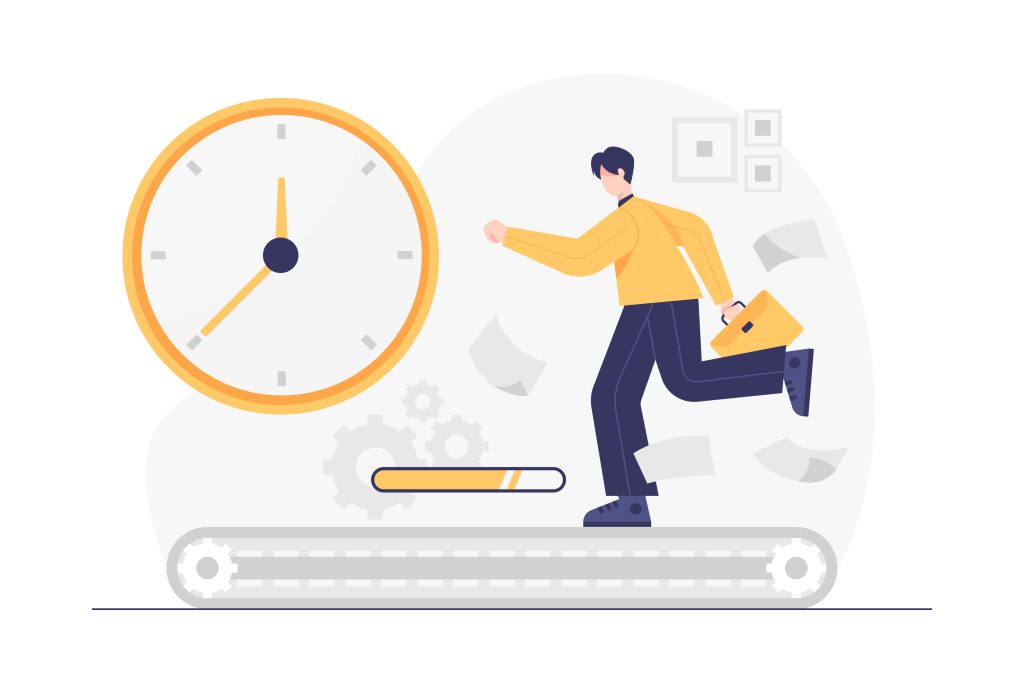In today’s fast-paced world, the idea of rapid career progression often dominates the conversation. From viral success stories to the “hustle culture” that encourages non-stop grinding, it’s easy to feel as though success must be achieved quickly. However, a growing movement advocates for a different approach to career development—one centered around slow, steady, and meaningful progress. This idea of “slow progress” emphasizes the value of patience, consistency, and intentional growth. Rather than rushing toward the next promotion or paycheck, professionals are learning that career satisfaction is often built over time, with small, deliberate steps that contribute to long-term success.

The Rise of Slow Progress in Career Development
As more people become aware of the detrimental effects of burnout, a shift in how we view career success is taking place. Slow progress in careers emphasizes the importance of taking deliberate steps toward personal and professional growth, as opposed to succumbing to the pressure of immediate results. While quick success stories may be appealing, they can also lead to unsustainable work habits and missed opportunities for meaningful development.
The pandemic, for instance, played a significant role in reshaping how many individuals view work. With many workers reevaluating their priorities during the lockdown, a sense of purpose and personal fulfillment became central to career decisions. In a world where burnout is rampant, professionals are increasingly seeking careers that offer satisfaction and alignment with their values, rather than just climbing the corporate ladder as fast as possible.
The Benefits of Slow Progress in Building a Meaningful Career
1. Deepening Skills and Expertise
One of the key advantages of slow career progress is the opportunity it provides to deepen one’s skills and expertise. Rather than rushing to the next job title or role, slow progress encourages individuals to focus on mastering their current responsibilities. It is in this process of continual learning and refinement that real expertise develops.
By dedicating time to understanding the intricacies of a role, professionals build a strong foundation that can serve them well in the future. This deep mastery often leads to more fulfilling work, as individuals are better equipped to handle complex tasks, innovate within their field, and contribute meaningfully to their organizations.
2. Building Stronger Relationships
Career growth isn’t just about skills; it’s also about relationships. With slow progress, professionals have the time to build genuine, lasting connections with colleagues, mentors, and industry peers. These relationships often become crucial to career success, whether it’s for guidance, collaboration, or future opportunities.
In fact, strong relationships can be just as important as technical expertise. Networking, mentoring, and forming meaningful connections with others within and outside of an organization provide the social capital that can lead to better career opportunities. Slow progress allows professionals to invest in these relationships without the pressure of constantly moving on to the next big thing.
3. Improved Work-Life Balance
The pursuit of rapid career advancement often leads to neglect of work-life balance, leaving little room for personal growth, health, or relaxation. By opting for slow progress, professionals can maintain a healthier balance between work and life. This approach encourages individuals to focus on their overall well-being, which in turn leads to better job satisfaction, creativity, and productivity.
Studies have shown that overworking can actually decrease long-term productivity and increase the risk of mental health issues such as burnout and anxiety. By taking a more measured approach to career advancement, professionals can focus on long-term health and happiness while still making progress in their careers.
How to Embrace Slow Progress in Your Career
1. Set Long-Term Goals
To embrace slow progress, professionals need to set clear, long-term goals that prioritize meaningful development over quick rewards. These goals should align with personal values and aspirations, providing direction and motivation over time.
Rather than focusing solely on promotions or salary increases, long-term goals should also consider personal growth, skill development, and work-life balance. For example, a long-term career goal might include becoming an expert in a specific field or taking on projects that align with one’s passions, rather than just aiming for the next job title.
2. Invest in Lifelong Learning
Slow progress requires continual learning and personal development. Embrace opportunities for further education, whether through formal courses, certifications, or self-directed learning. As the workplace evolves, so too should one’s skills.
By staying curious and open to learning new things, professionals ensure they remain adaptable and valuable in an ever-changing job market. Slow progress encourages individuals to see learning not as a means to an end, but as an ongoing process that supports their broader career journey.
3. Focus on Value Creation
Rather than chasing after immediate promotions or pay raises, professionals should focus on creating real value within their roles. This could mean improving existing processes, helping colleagues succeed, or coming up with innovative solutions to persistent challenges. By prioritizing value creation, individuals build a reputation for being thoughtful, reliable, and effective in their work.
When value is the primary focus, recognition and advancement often follow naturally. People who consistently add value to their team or company tend to get noticed, and their slow, steady progress eventually leads to long-term career fulfillment.
Slow Progress in the Digital Age
In the digital age, the concept of slow progress can seem counterintuitive. With the rise of digital tools, remote work, and instant communication, there’s a temptation to push for quicker results. Social media, especially, often highlights stories of rapid success, reinforcing the idea that instant gratification is the key to success. However, the reality is that these stories often omit the hard work, setbacks, and time that actually went into achieving that success.
As we navigate the digital era, professionals can still find room for slow progress by prioritizing quality over quantity. Instead of rushing through tasks or feeling pressured to work around the clock, individuals can set realistic expectations and take the time necessary to complete work to the best of their abilities. This means disconnecting from the constant hustle and valuing personal growth, creativity, and long-term goals over short-term achievements.
The Future of Career Progression
Looking ahead, slow progress may become the dominant approach to career development. As the effects of burnout become more widely recognized and as people place greater value on work-life balance, professionals will increasingly reject the notion that rapid success is the only path to a meaningful career.
The focus will shift toward a more holistic view of career growth—one that values long-term personal and professional development over quick wins. In this landscape, slow progress will be seen as a powerful tool for building lasting, fulfilling careers that prioritize well-being, expertise, and meaningful relationships.
Conclusion
Slow progress isn’t about stagnation—it’s about creating a career that’s grounded in purpose, mastery, and sustainable growth. By embracing a more deliberate approach to career development, professionals can build meaningful careers that provide lasting satisfaction. It’s time to redefine what success looks like and recognize that the best careers are often built step by step, over time.
References:
- Stanford Graduate School of Business. (2021). Take This Job and Love It: How a Growth Mindset Can Boost Happiness at Work. Retrieved from https://www.gsb.stanford.edu/insights/take-job-love-it-how-growth-mindset-can-boost-happiness-work
- Forbes. (2022). How To Successfully Navigate The Three Stages Of Your Career. Retrieved from https://www.forbes.com/sites/jackkelly/2025/05/06/how-to-succeesfully-navigate-the-three-stages-of-your-career/
- The Secret to Success? Mastering the Art of Patience. Time Magazine. September 8, 2021.
URL: https://time.com/6095843/learning-patience/






